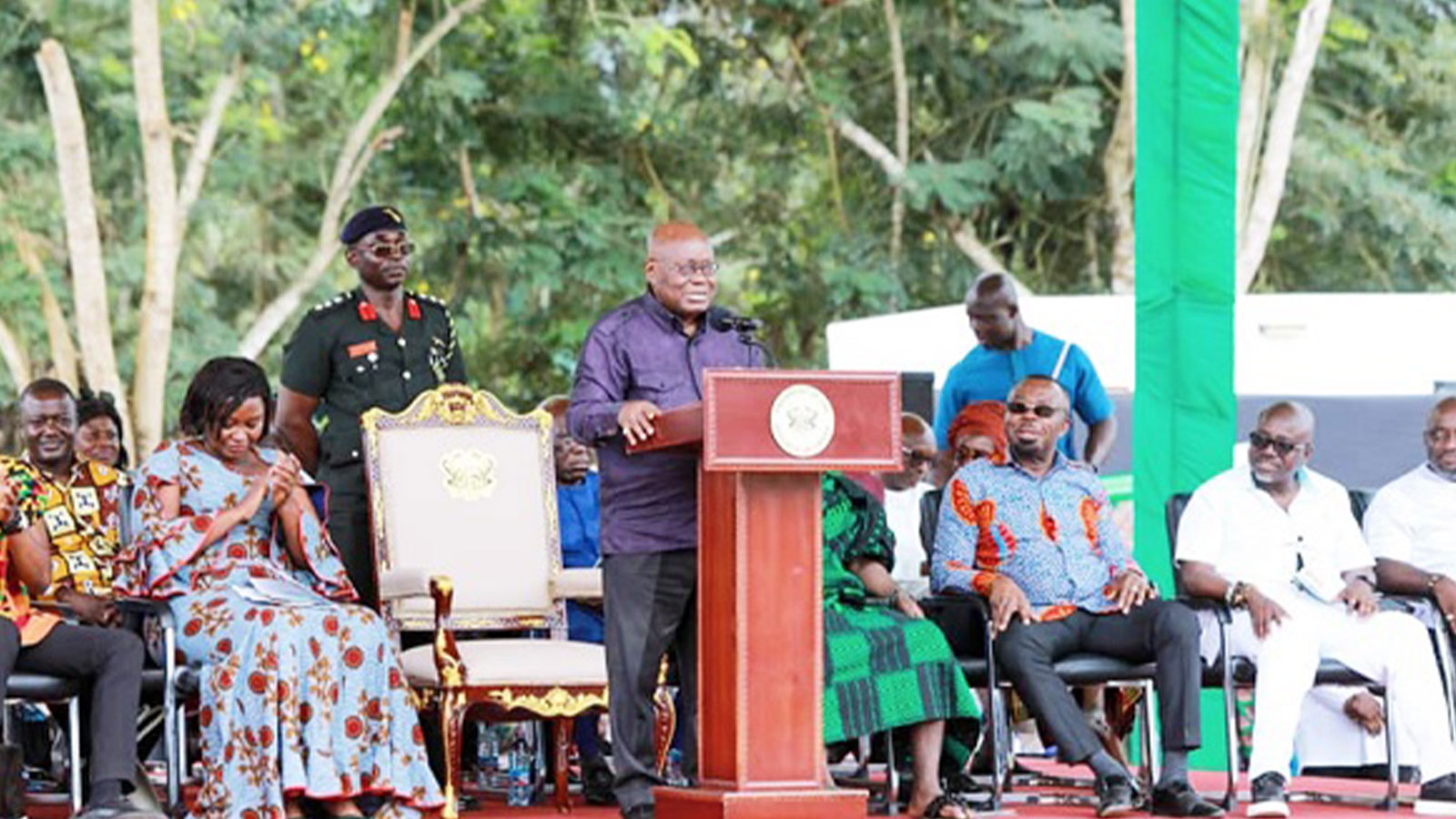Ghana will host a conference for people of African descent in October this year to reflect and push forward the demand for reparations for Africa for the slave trade.
By Shirley Asiedu-Addo and Francisca Eshun, Graphic Online —
President Nana Addo Dankwa Akufo-Addo, who announced this last Tuesday at a solemn durbar at Assin Manso in the Central Region to mark the Emancipation Day celebration, said the African Union had given its blessings to the conference.
“If people can be compensated for the holocaust, Africans can be compensated for slavery,” he stated.
He said it was important to resolve that the atrocities caused during the period of the slave trade would not be allowed to happen again.
The President said the Emancipation Day celebration allowed society to discuss reparation for Africa and added that it was time to unite as Africans to forge ahead to achieve progress.
The durbar, which was spiced with cultural displays, was attended by local chiefs and people from the Diaspora.
This year’s Emancipation Day celebration, which marked the 25th year since the day was instituted, was dubbed: “Empowering the Africa family to confront the challenges of the 21st century”.
President Akufo-Addo said the Emancipation Day celebration did not only allow Ghanaians and Africans to remember the many lives lost in the slave trade, but to recommit to resolve that never again would the Africans allow such an evil to be perpetrated against them.
Occasion
He said the occasion also allowed people of African descent to build bridges and to reconnect as a united family to confront the challenges that faced them in the 21st century, and urged the African society to join hands to improve the wellbeing of people of African descent.
He said the occasion enabled Ghanaians and Africans to celebrate their “freedom, independence and sovereignty to renew our pledge as found in the national anthem that we will resist oppressors’ rule with our will and with all our might”.
He made a personal presentation of GH¢100,000 and drinks towards the celebration.
Collaborations, partnerships
The Minister of Chieftaincy and Religious Affairs, Stephen Asamoah Boateng, expressed the hope that the celebration would renew a mindset that would prevent a situation where one set of humans would maltreat another set again.
The Deputy Minister of Tourism, Arts and Culture, Mark Okraku Mantey, called for collaborations and partnerships to allow the transfer of skills among Africans, saying people of African descent must be emancipated economically too.
Equality, etc needed
The Central Regional Minister, Justina Marigold Assan, paid tribute to African forebears, and urged society to use the celebration to fight for equality, transparency, integrity and mutual respect for all of the human race, irrespective of race and colour.
She said emphasis on the quest to defend African’s existence and heritage depended on the people acquiring knowledge and skills to keep the spirit across the world.
She urged society to guard against practices that diluted African cultures and traditions and the African personality.
A member of the Diaspora, Prof. James Small, expressed gratitude to Ghana for the opportunity afforded people in the Diaspora to return and for sustaining the Emancipation Day celebrations.
Alien cultures
The Paramount Chief of Assin Apimanim Traditional Area, Barima Kwame Nkyi XIII, said mental slavery was still going on, including efforts to impose same sex marriage on the African continent, saying it was alien to the African culture.
He said the Emancipation Day celebrations must liberate Africa from cultures that were alien to the African continent.
He called for improved infrastructure at the slave heritage site and to improve the road network to the area to attract tourists.
Wreaths were laid in honour of the departed kins at the courtyard of the Assin Manso heritage site.
Source: Graphic Online
Featured image: President Nana Akufo-Addo addressing the emancipation day durbar at Assin Manso















